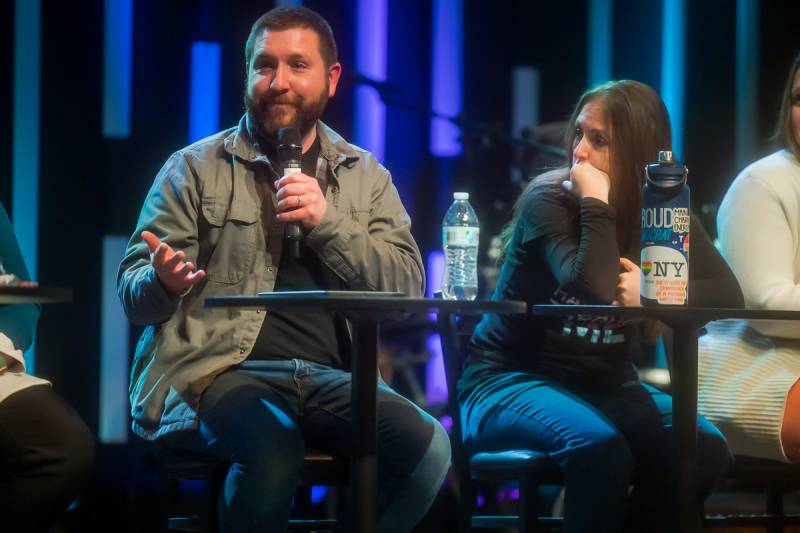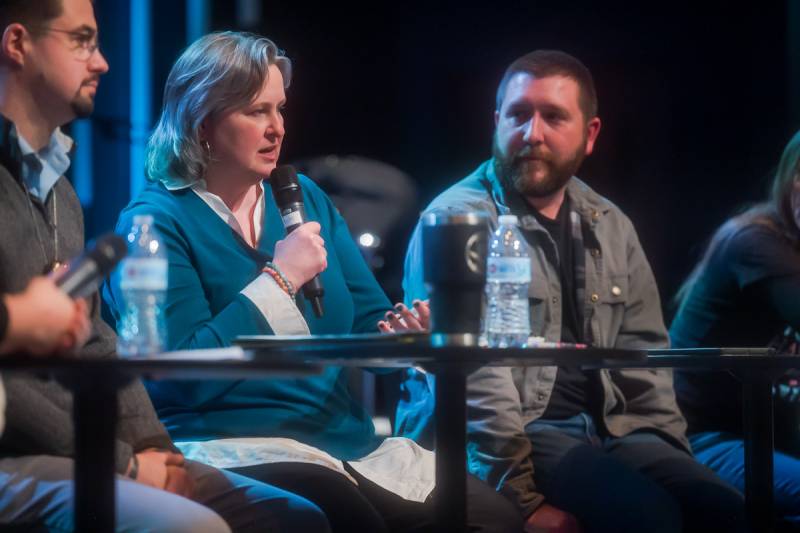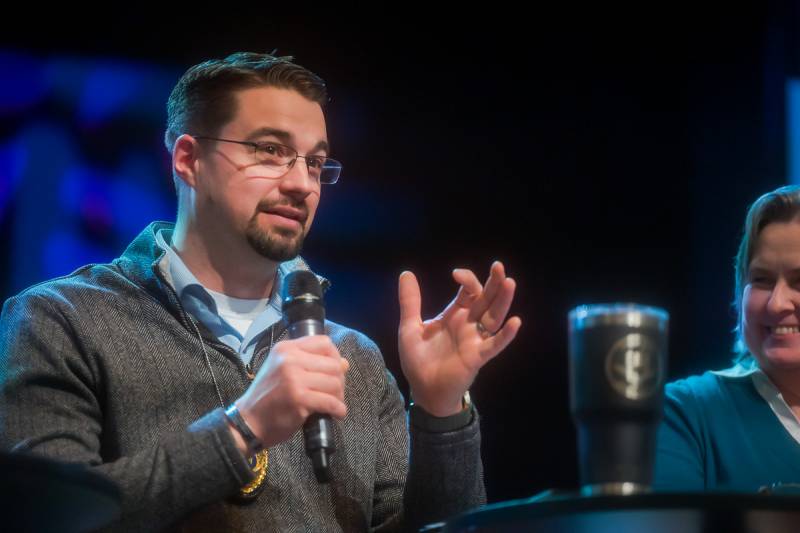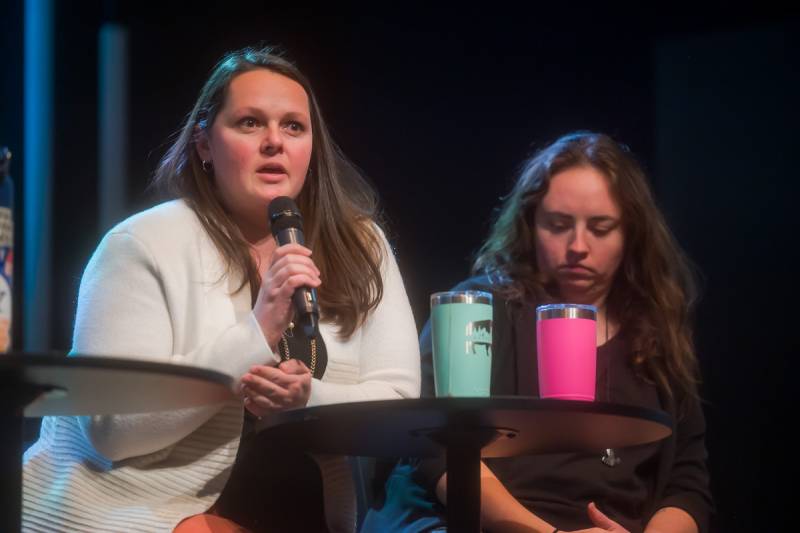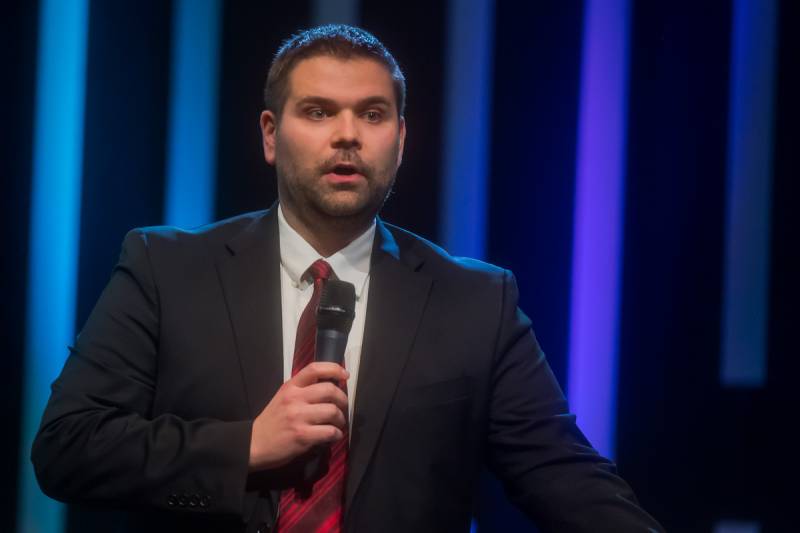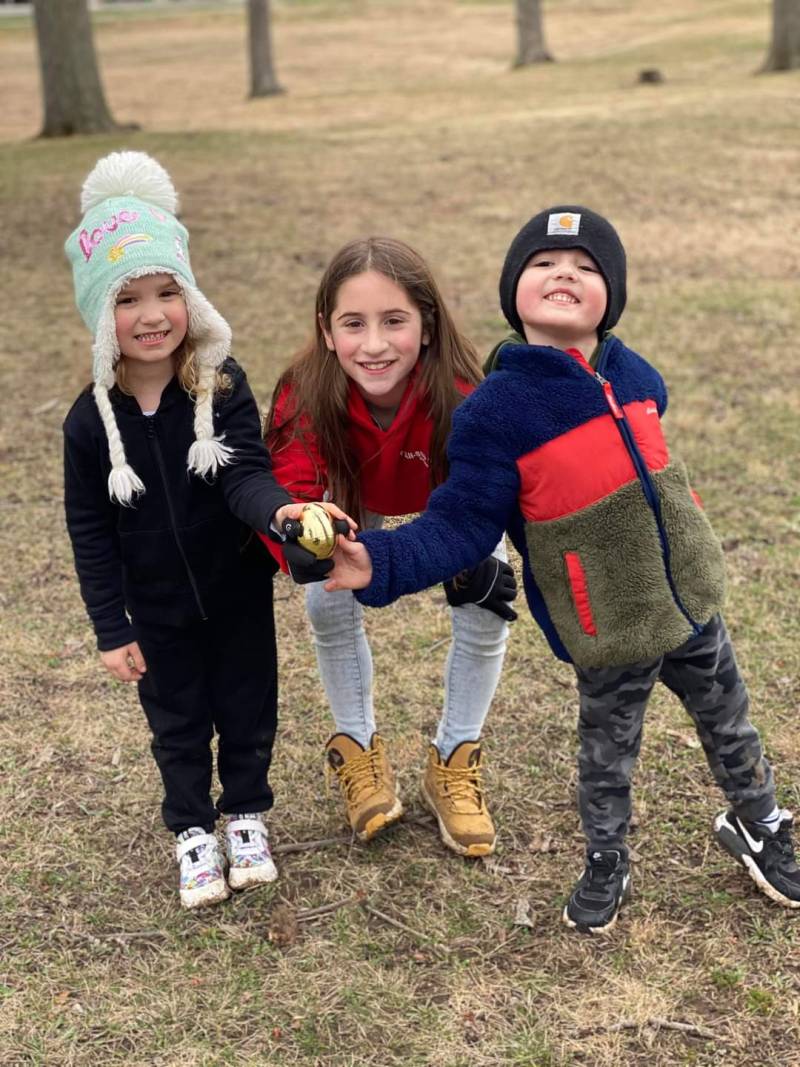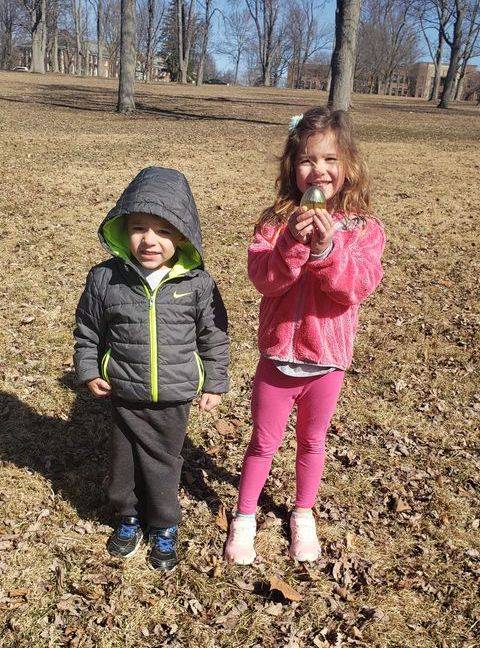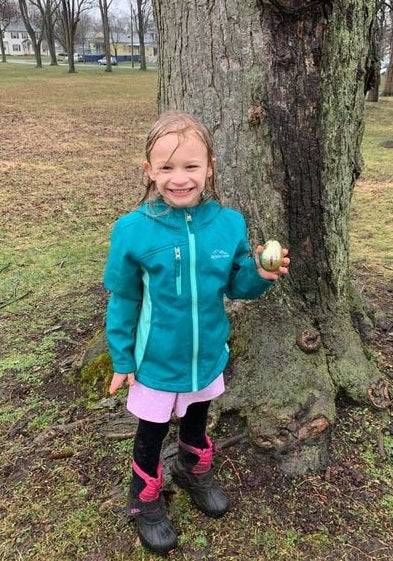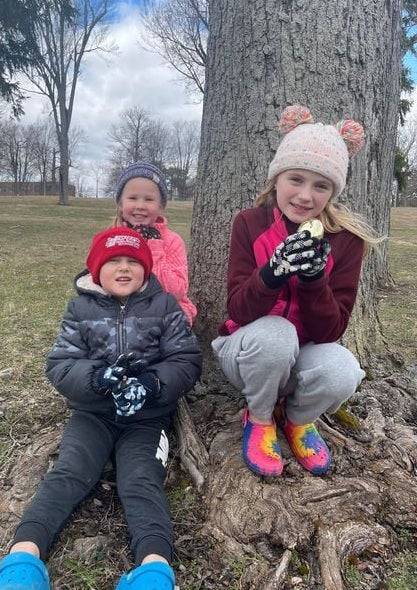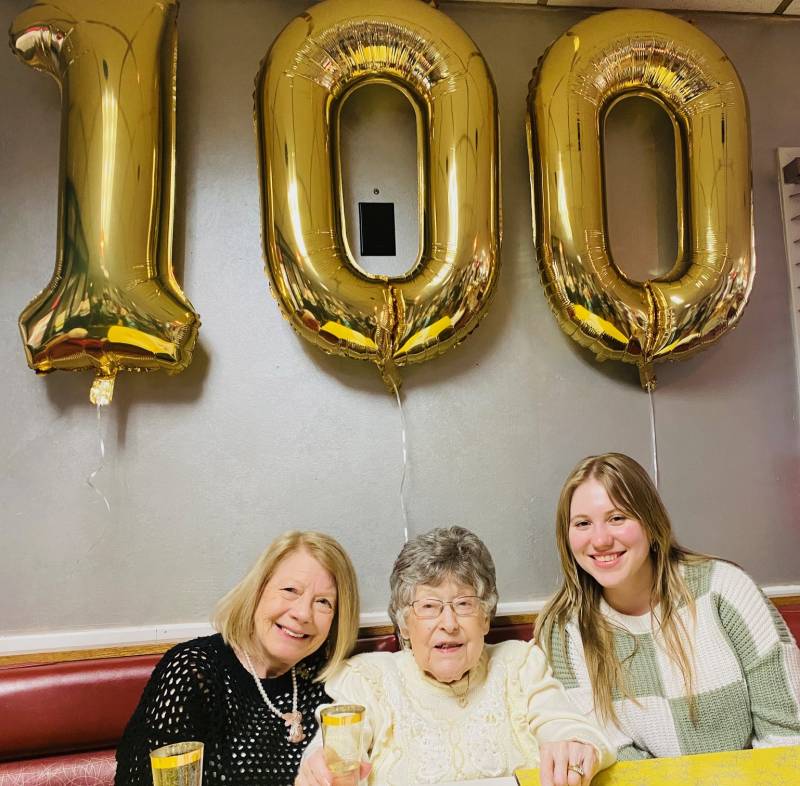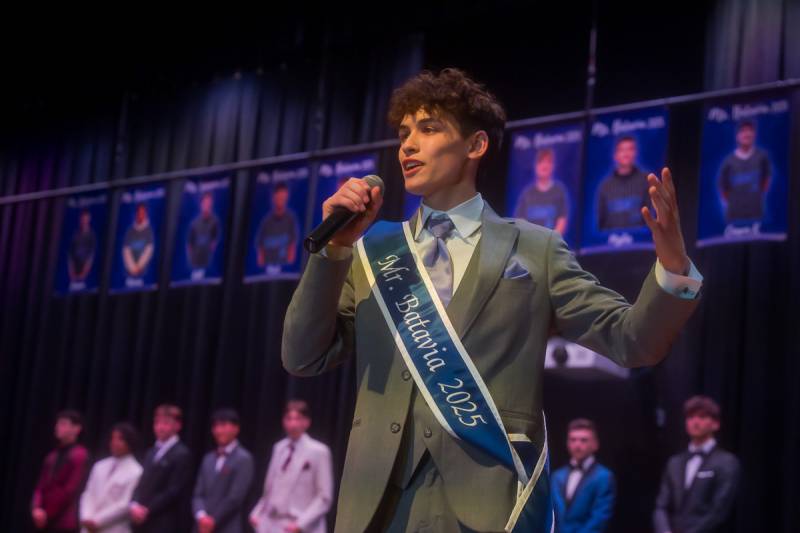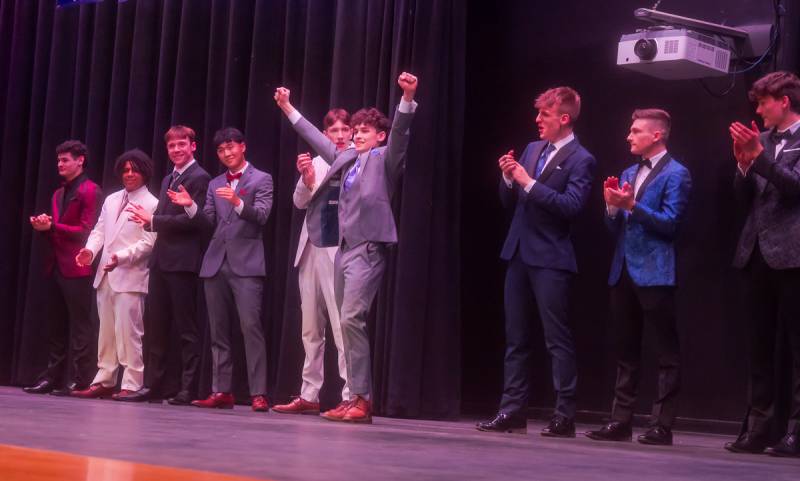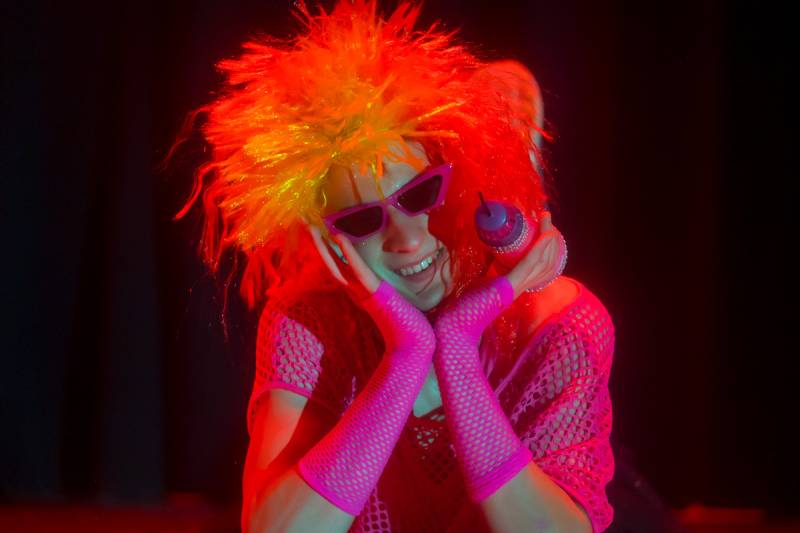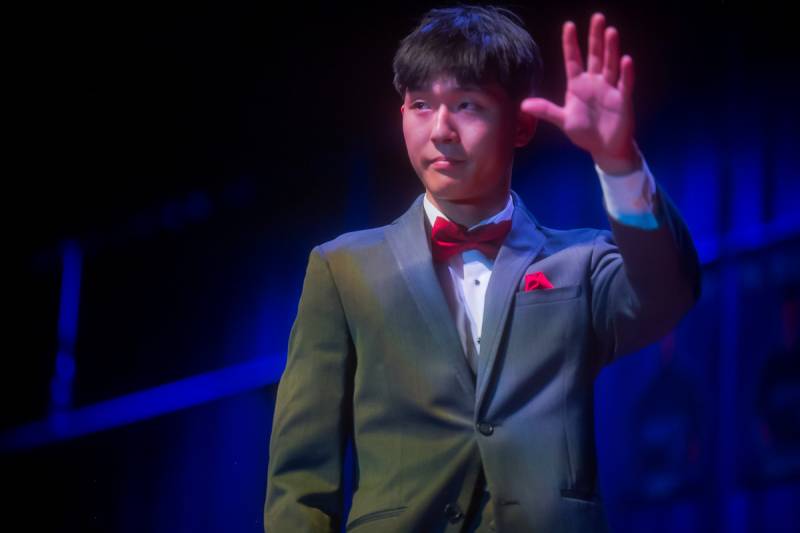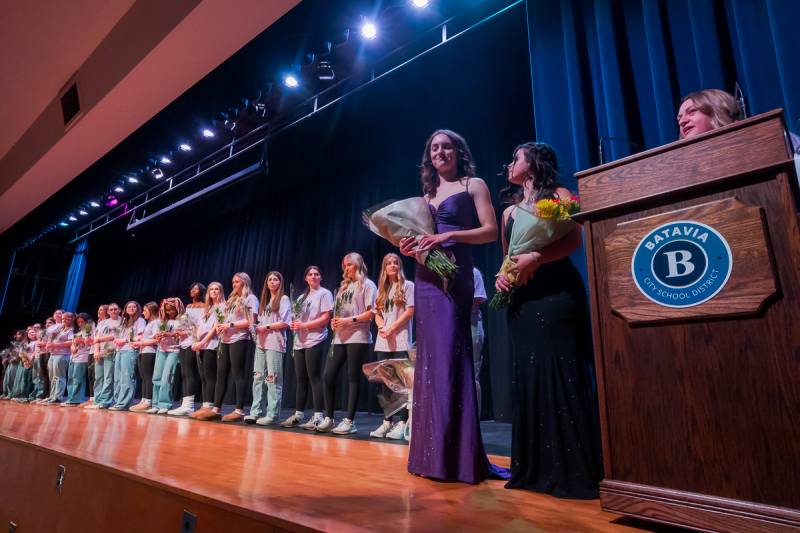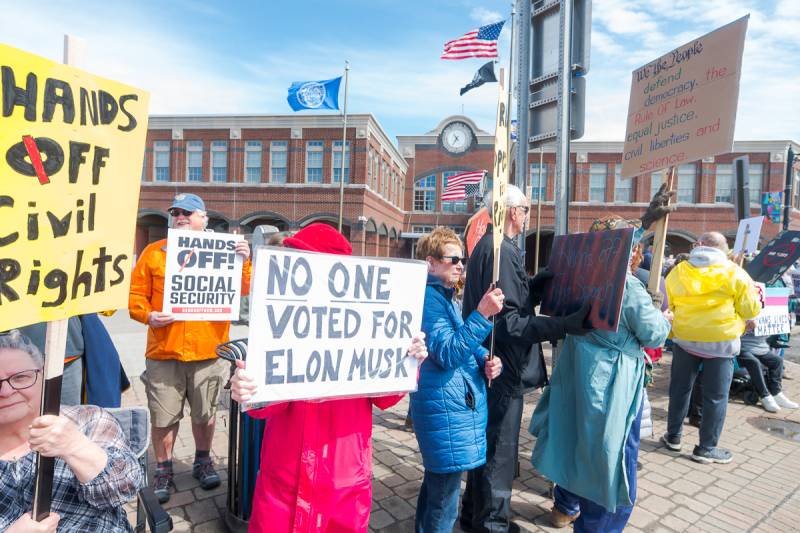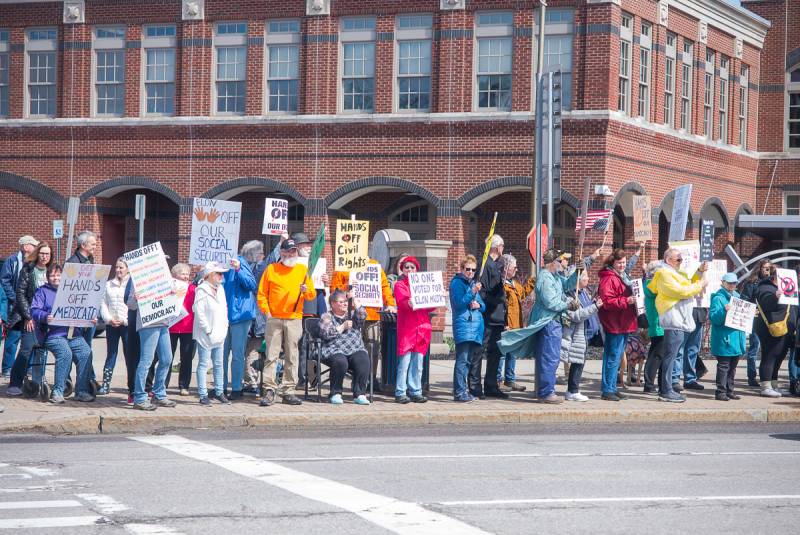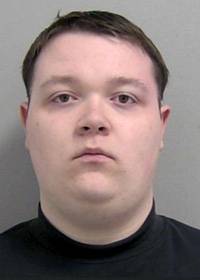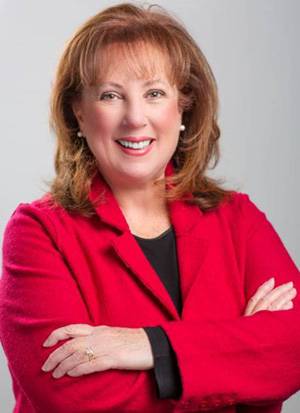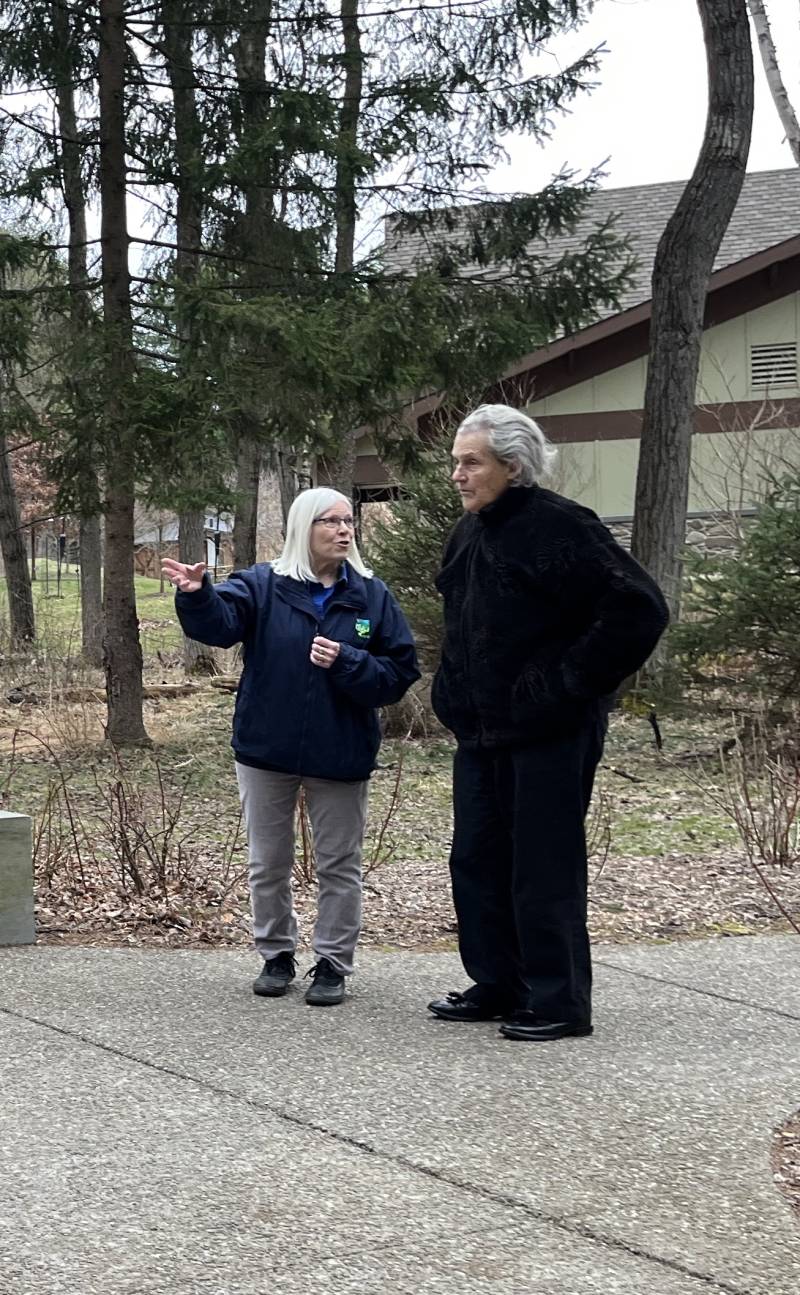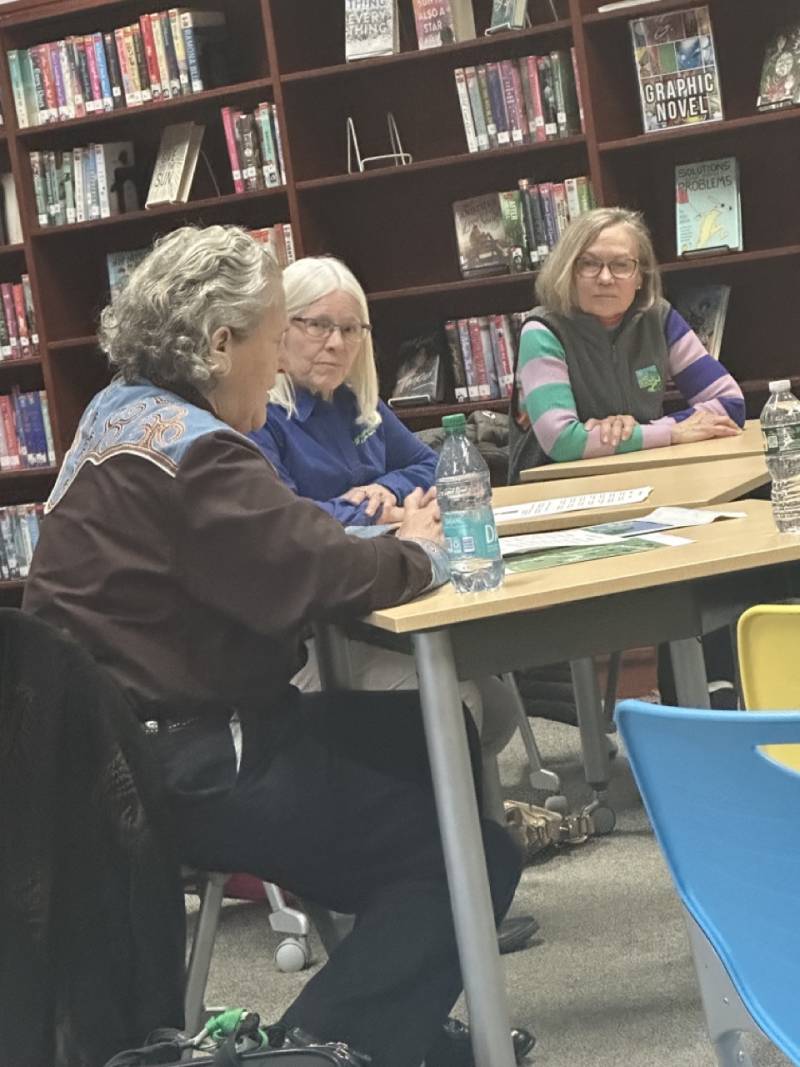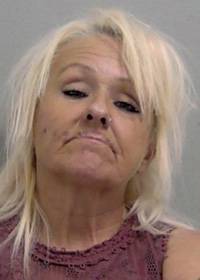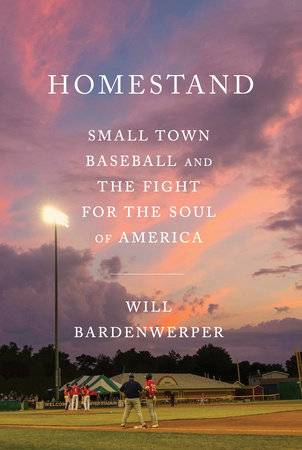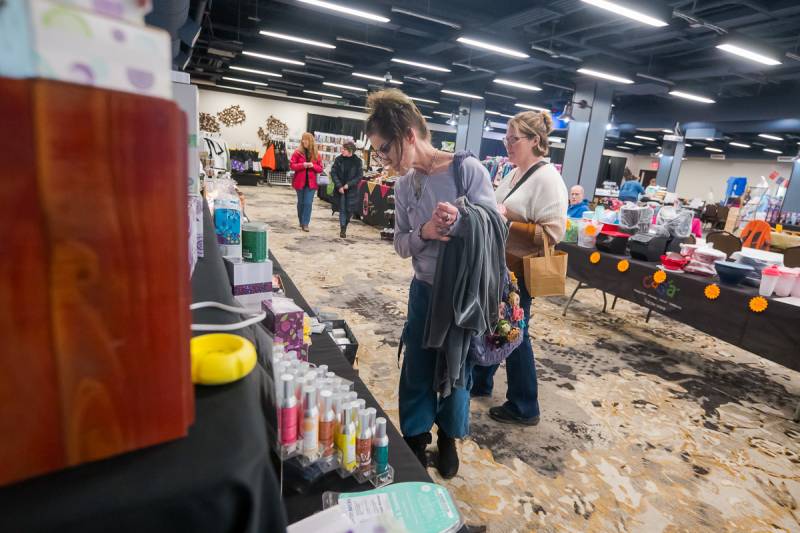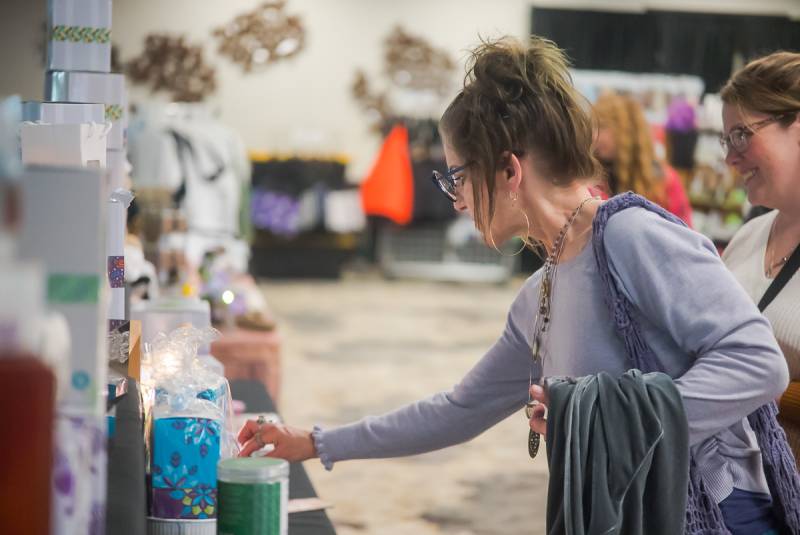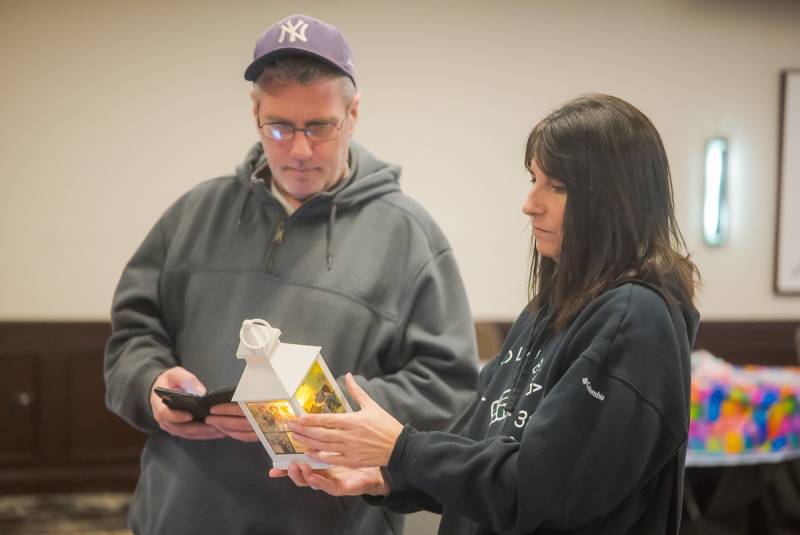Healing a community takes a village of specialized forces: recognizing Criminal Justice Day with awareness program
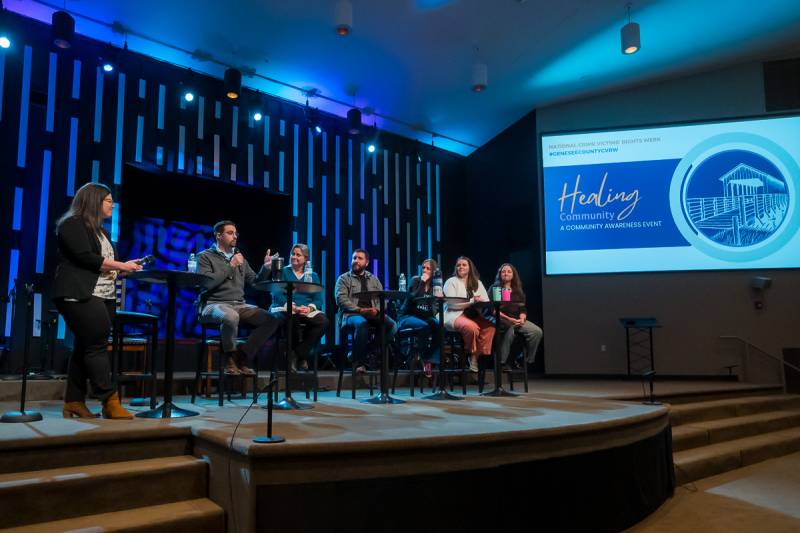
Photo by Howard Owens
Although there are multiple agencies ready to help victims of crime in Genesee County, sometimes all it takes is that one person with a particular forte, Jess Marciano says.
“Having a Swiss Army knife is not always the most effective tool,” Marciano said during a Criminal Justice Day panel Monday at Grace Baptist Church in Batavia. “It might be better having somebody who is specialized … to have diversified experts. Knowing who to tap, that’s what makes this so incredibly helpful.”
Marciano represented GLOW OUT!, and was with five others — Batavia Police Youth Detective Eric Hill, Grace Baptist Church Associate Pastor Zack Dawson, Restore Sexual Assault Services Training Coordinator Bobbie Steinhauer, and Jacquelyn Wheeler and Samantha Rychlicki of YWCA, all who spoke about their local resources within the county that offered those specialized services to victims.
They were given a scenario of a mother and father that didn’t get along, and had a transgender child who was struggling with the turmoil and dad’s addiction and abusive behavior toward the mom.
How would each agency respond?
The police department would refer the family, dad in particular, to the Police Assisted Addiction and Recovery Initiative (PAARI), Hill said, plus the fire department and Genesee County Sheriff’s Office.
“You can come to us with those drug addiction problems, and we won’t arrest you,” he said. “That would be a case where we would not arrest you, but we would actually get you in touch with ConnectCare services and counseling services without any questions asked. So if we were called to the scene, or if this family came to our police department with these issues, that would be a potential avenue for them to go down.”
There’s a countywide Single Point of Access group (SPOA) for pulling multiple agencies together to discuss issues and needs; the Mental Health Department for counseling; YWCA’s domestic violence services and a safe house for mom and the child if needed; Family Court and orders of protection; Grace Baptist certified counselors; and the police department’s jurisdiction of making an arrest and getting an arraignment for the husband’s abusive actions to prevent further harm while the case goes to court.
Restore would probably focus first on mom and make sure that she had supports for the sexual assault history, and is connected with a counselor, Steinhauer said.
“Because, again, her services are all free, trying to get whatever support she needs. And because we've got counselors that serve Batavia, that would be one piece of the puzzle, and then to try to figure out what else is needed,” she said. “We have some resources for the queer community, for the parents and for the kids that just say, here's some books, here's some resources, so that you know that you're welcome here and might be supportive to what means this family have. And then always, always the hotline. Any time, any reason you wake up at 3 a.m. and because, for reasons that trauma likes to hit at 3 a.m. we have a full volunteer (schedule). These people learn to be volunteers. They work hard, and they show up at 3 a.m. for those calls, and that's why they're there.”
As for Dawson, he’d want people to show up at the church.
“I’d want them to find that church community, and life is better connected. We’re not meant to live life in isolation, and it sounds like that family is isolated,” he said. “They need relationship and they need to find safe people. One of the things that I'd encourage you to do is I know that there's safe people in the school, and teachers love the students that they have, and the way that I've tried to work is just to be a person that is known as a safe person.”
He likened a person to a four-legged chair, with each leg an extension of that being: the spiritual aspect, social aspect, emotional aspect and the physical. So if someone has suffered physical and/or sexual abuse, there’s damage that “as a church we would want to get that person out of that situation,” he said.
“We would work with dad’s addiction … it’s not just the flip of a switch. We need to walk alongside that man and help him navigate, what are the triggers for that? How can we walk alongside with you and have accountability to where we can help you be successful to conquer that?” he said. “And for the child, man, they’ve faced a lot of stuff. Some of it has been … because the parents are trying to figure out how to handle that. And so that child needs to know that they’re loved, that they’re cared for, and that blame that they might feel, that shame that they might feel, we need to help them navigate that. I want to help them see their identity isn’t just in sexuality or a gender, their identity is beyond that.”
“You’ve gotta walk with people, life is hard,” he said. “And so, you want to keep going with them for the long haul … as well as walking through what the Bible says.”
YW staff would consider it a domestic violence situation, Rychlicki said, and ask the mother to fill out an intake form, meet with a case manager and staff could serve as advocates during her time in court, offer food from the nonprofit’s pantry and help manage a safety plan.
“We’re going to meet them where they are,” Wheeler said, explaining that they wouldn’t dispense advice such as get a divorce. “We are there as a support. We’re not necessarily dictating or putting conditions on how they have to act in order to receive our services or engage with us.”
While it’s true that each agency has its own level of expertise, they do often collaborate on a case, which Hill often initiates as part of his job as coordinator, he said. A case may go before SPOA, and then to GLOW OUT! For one portion and to Restore for another need. He gave an example of when there’s an attempted suicide.
“There’s agencies that are automatically activated when certain things happen,” he said.
Trisha Reynolds, program coordinator of Justice for Children Advocacy Center, facilitated the panel and said it was a big help for all the key players to get to know one another to “make sure we’re coordinating services.” After all, the theme of the day for the more than 100 people in attendance was about healing the community through awareness.
“So that people in the community know what's out there for them. Everybody knows that there's mental health. Everybody knows about substance abuse treatment, UConnect. But then there's some other resources that we felt like maybe people wouldn't be so aware of … especially like youth detective. I mean, people hear police, they think they're just out to arrest, but they can offer so many other services and support groups and all kinds of things,” Reynolds said. “So I think we just wanted people in the community to be aware that if you find yourself as victim of a crime, there are a multitude of community agencies out there to help you.”
Joseph Robinson of the District Attorney’s Office had the job of summarizing all of the day’s presenters. Now in his sixth year with the office, he has handled domestic violence cases — “cases with people who are in the most vulnerable position in their life” — he said.
He wasn’t going to do that alone, and relied “heavily” on county agencies like those that were just up on stage, he said.
“Back then, I didn’t even know about all the other agencies involved with this, and they really helped me be able to connect with the victims, make sure the victims were heard, and that what the victims were looking for was something we took into consideration during these cases,” Robinson said. “Like the sheriff said earlier, a lot of the criminal justice system is focused on holding the offender accountable. But that’s not the only thing we do. We listen to the victims, and we make sure they’re heard in the courtroom, whether it be in the plea we offer or giving them the chance to speak at sentencing, so that they know their voice is heard, not just to us but to the courts.
“And when it comes to holding that person accountable. My job, without having the victim feel safe, feel like they can talk to us, we have no case,” he said. “These victims aren’t on their own. They don’t need to handle this on their own, there are numerous agencies out here to help them, the community is here to help them, and it really does take a village for these people to get thought he situation, to feel safe again.”
Photos by Howard Owens
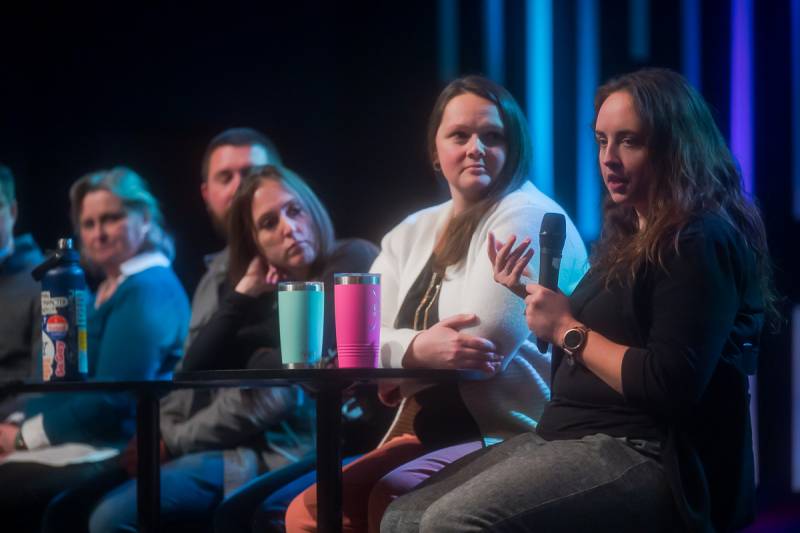
Photo by Howard Owens
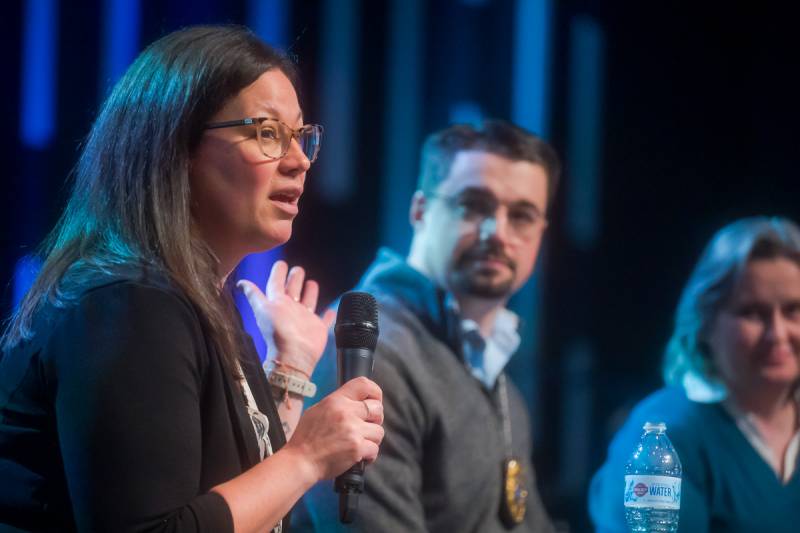
Photo by Howard Owens
